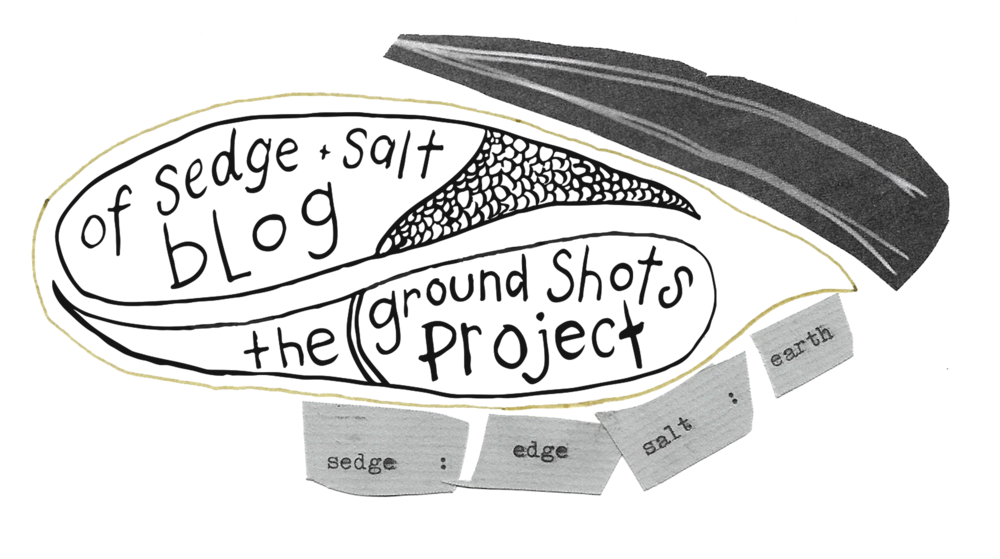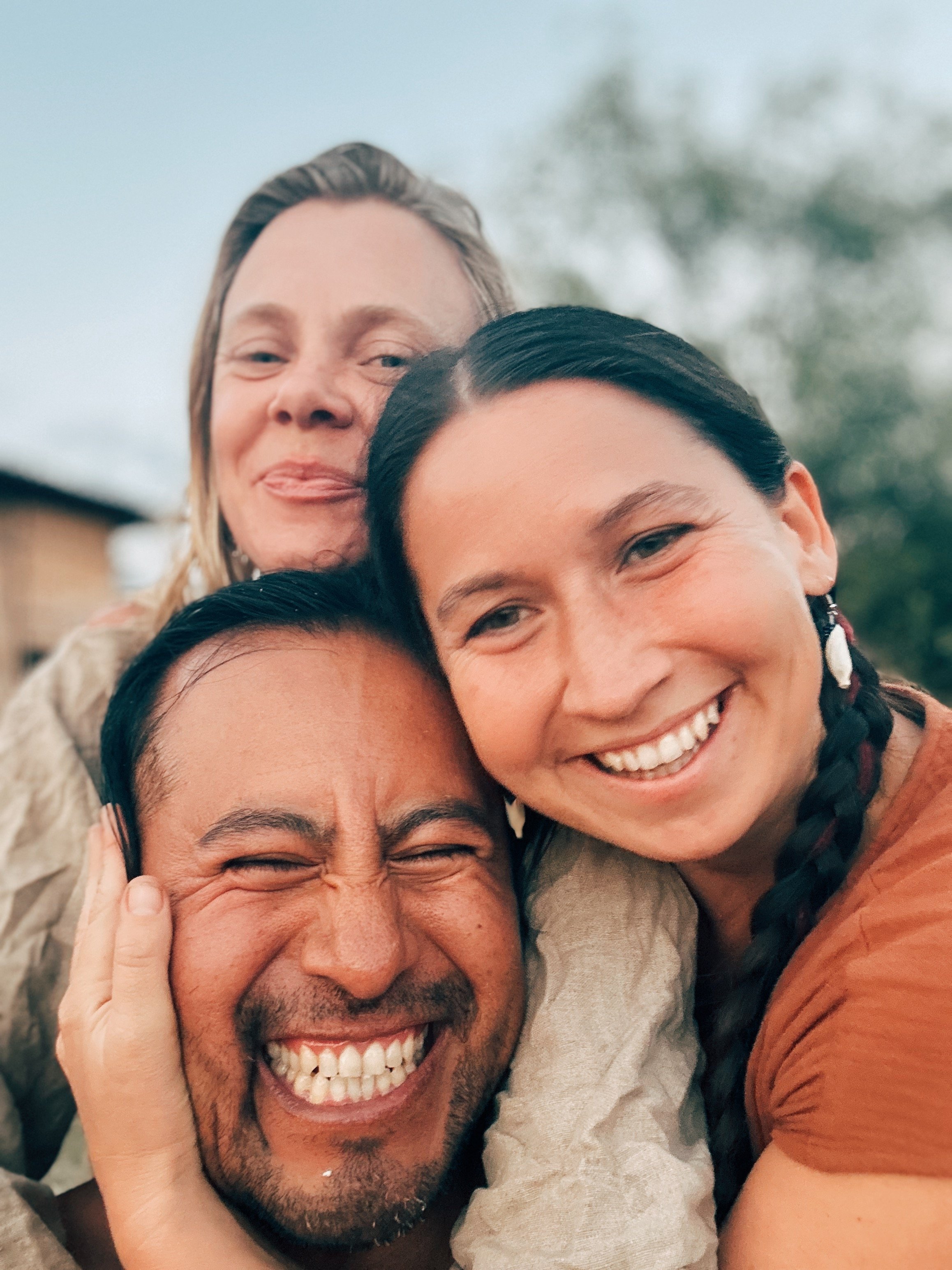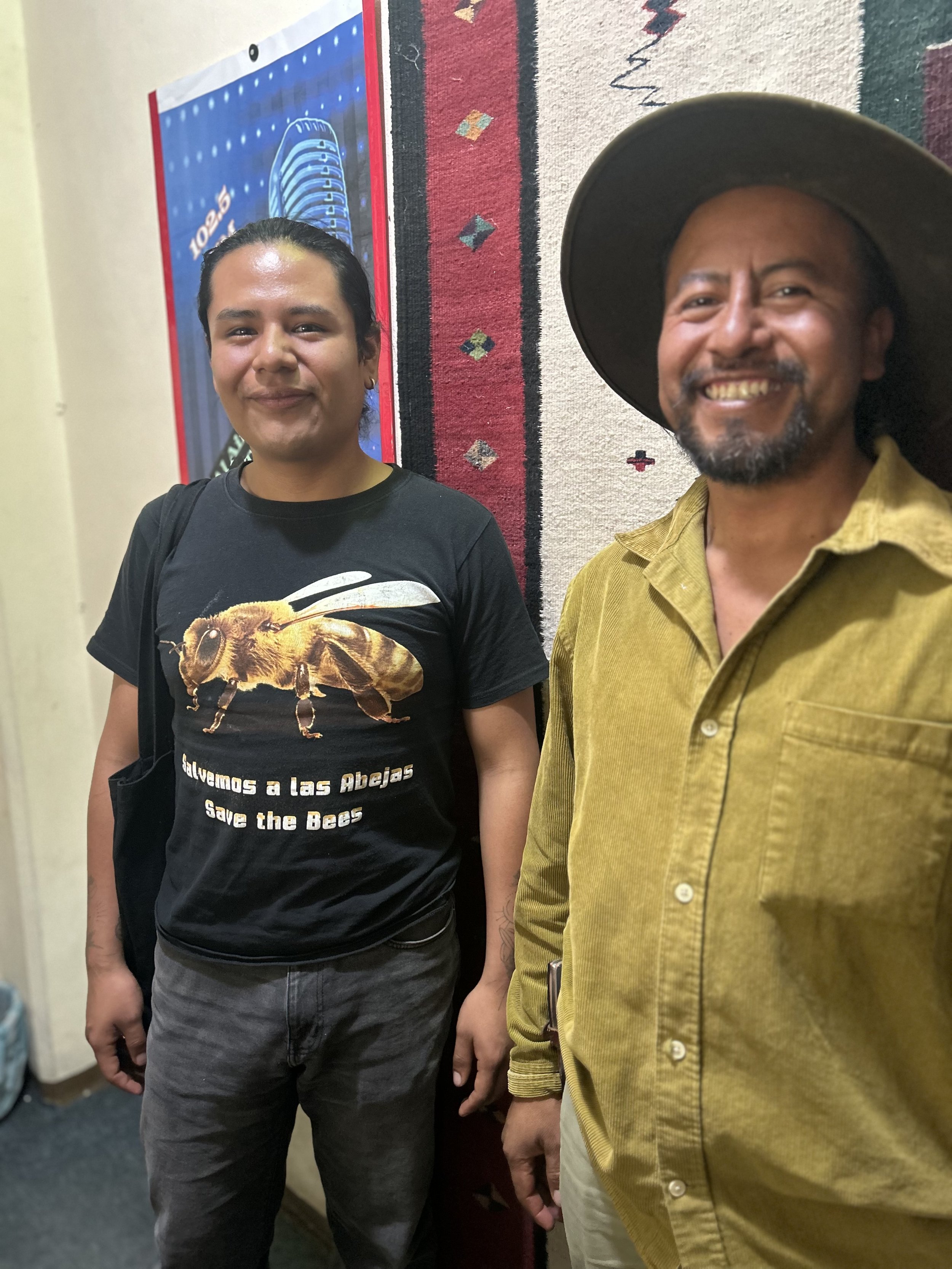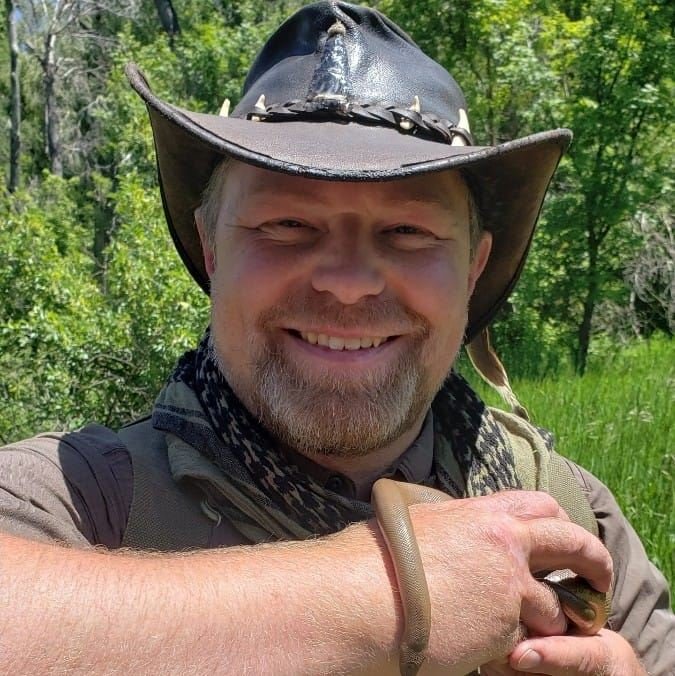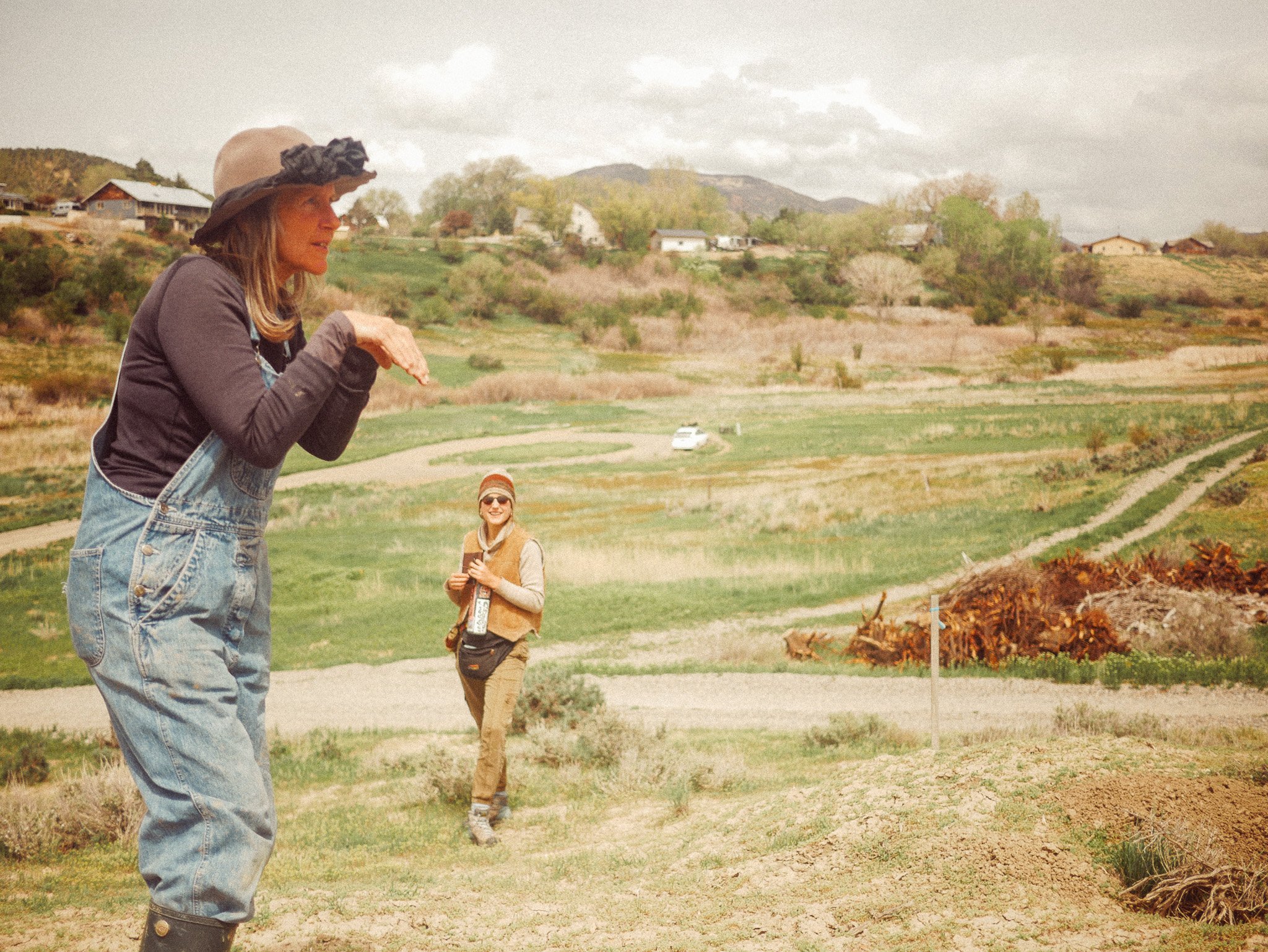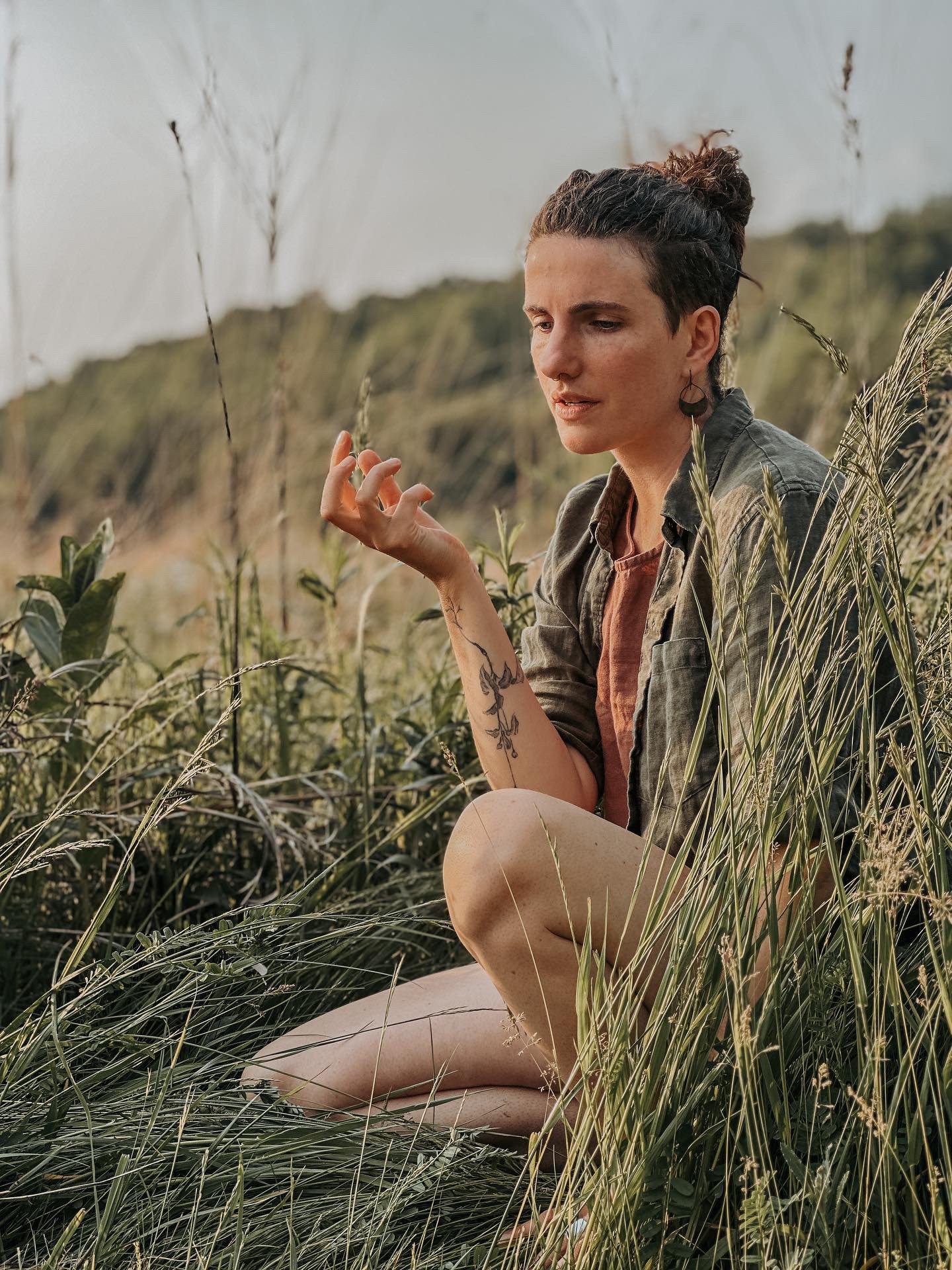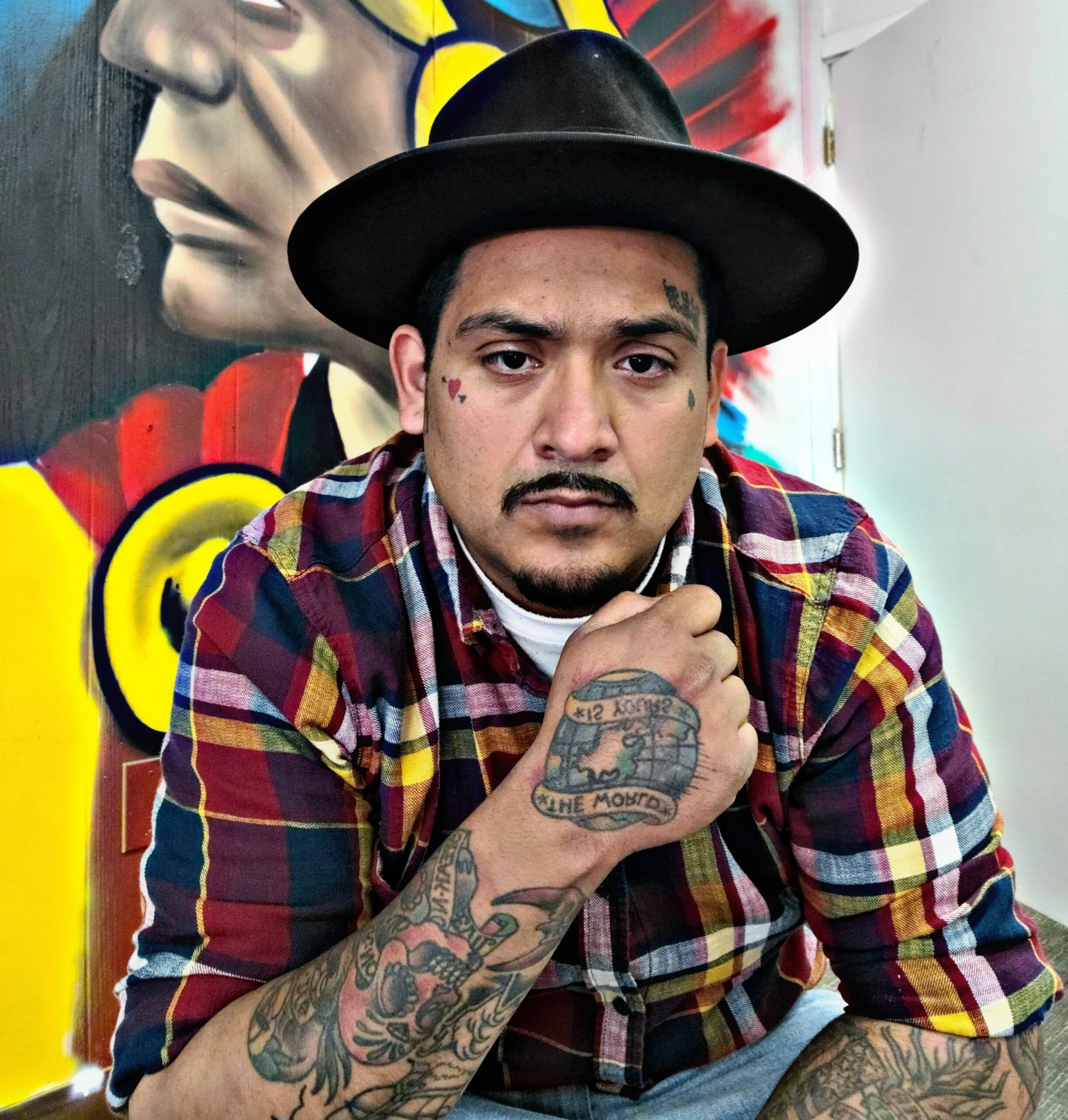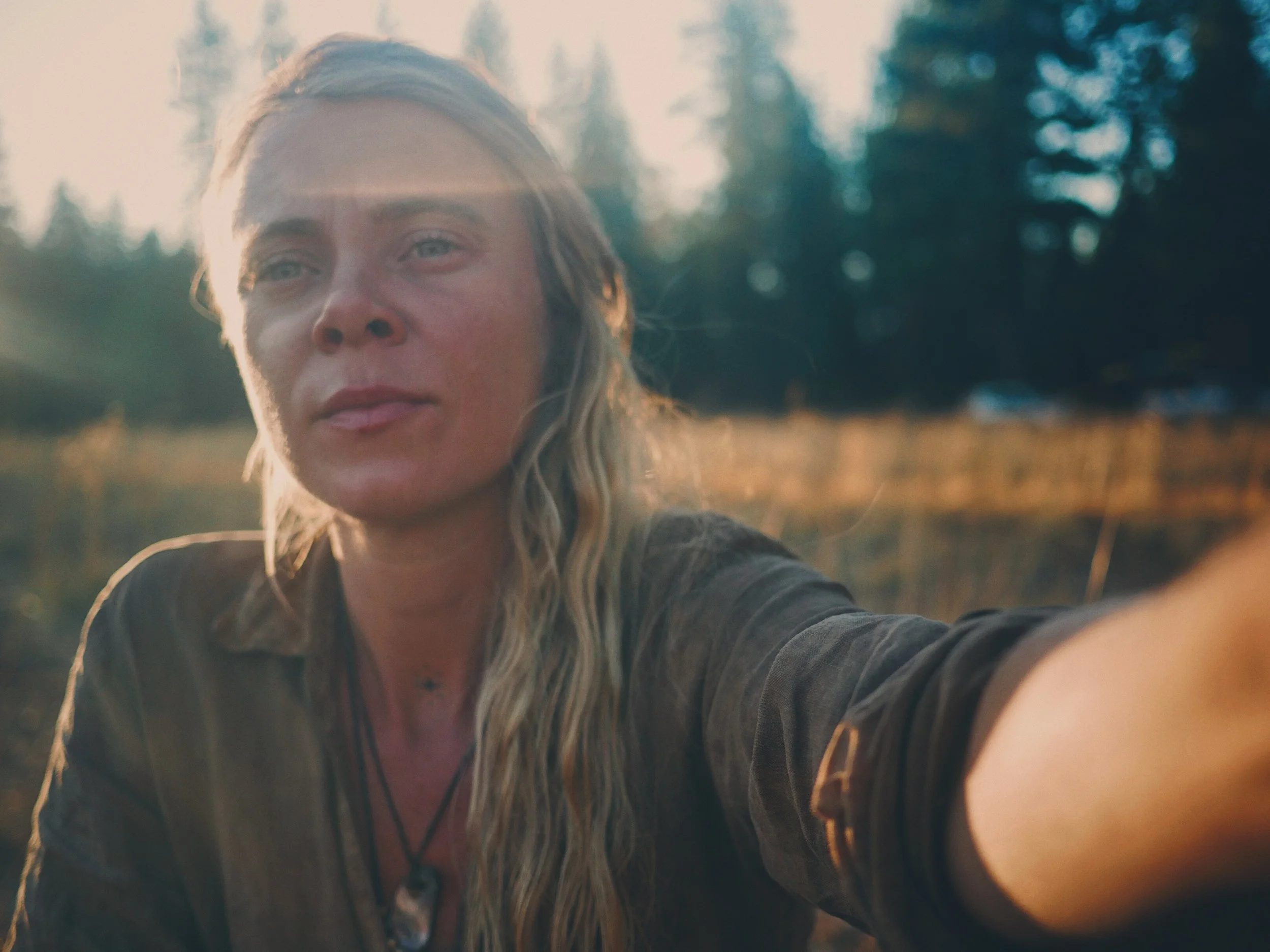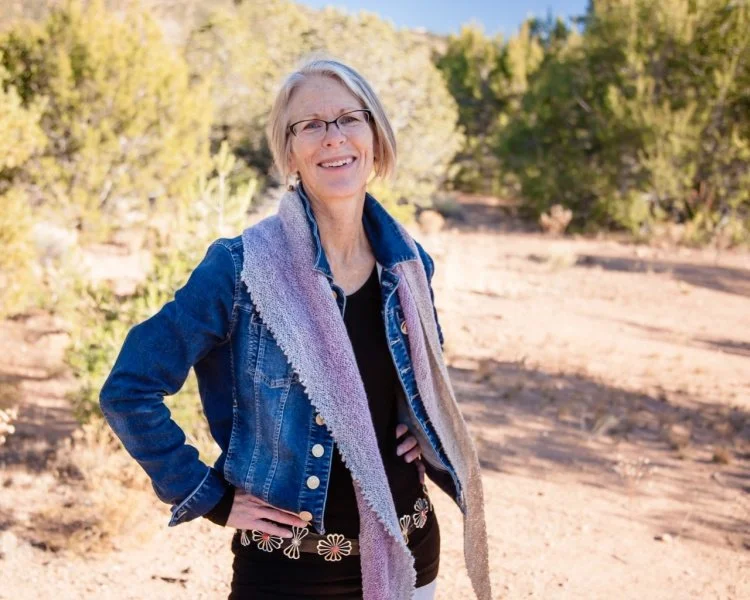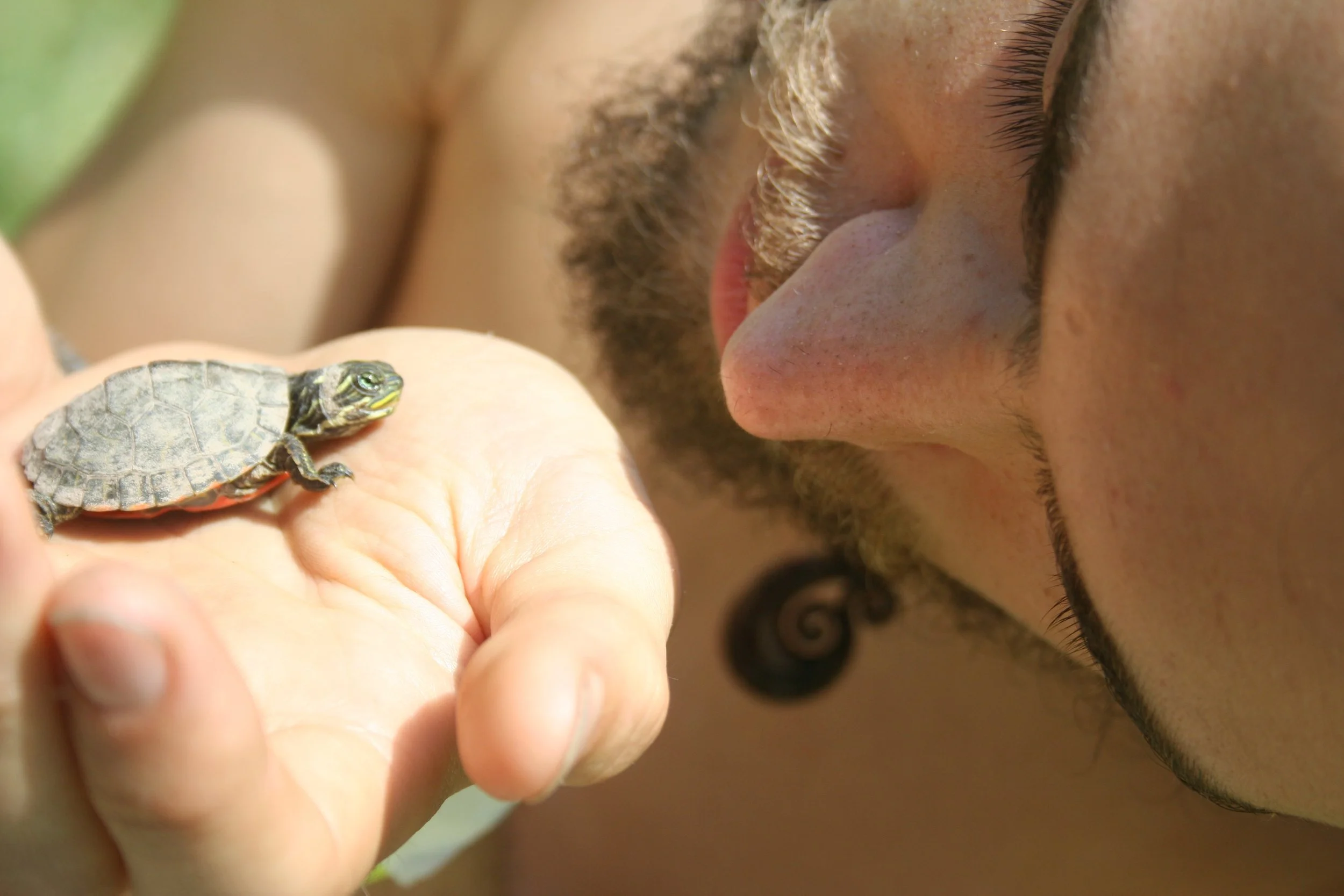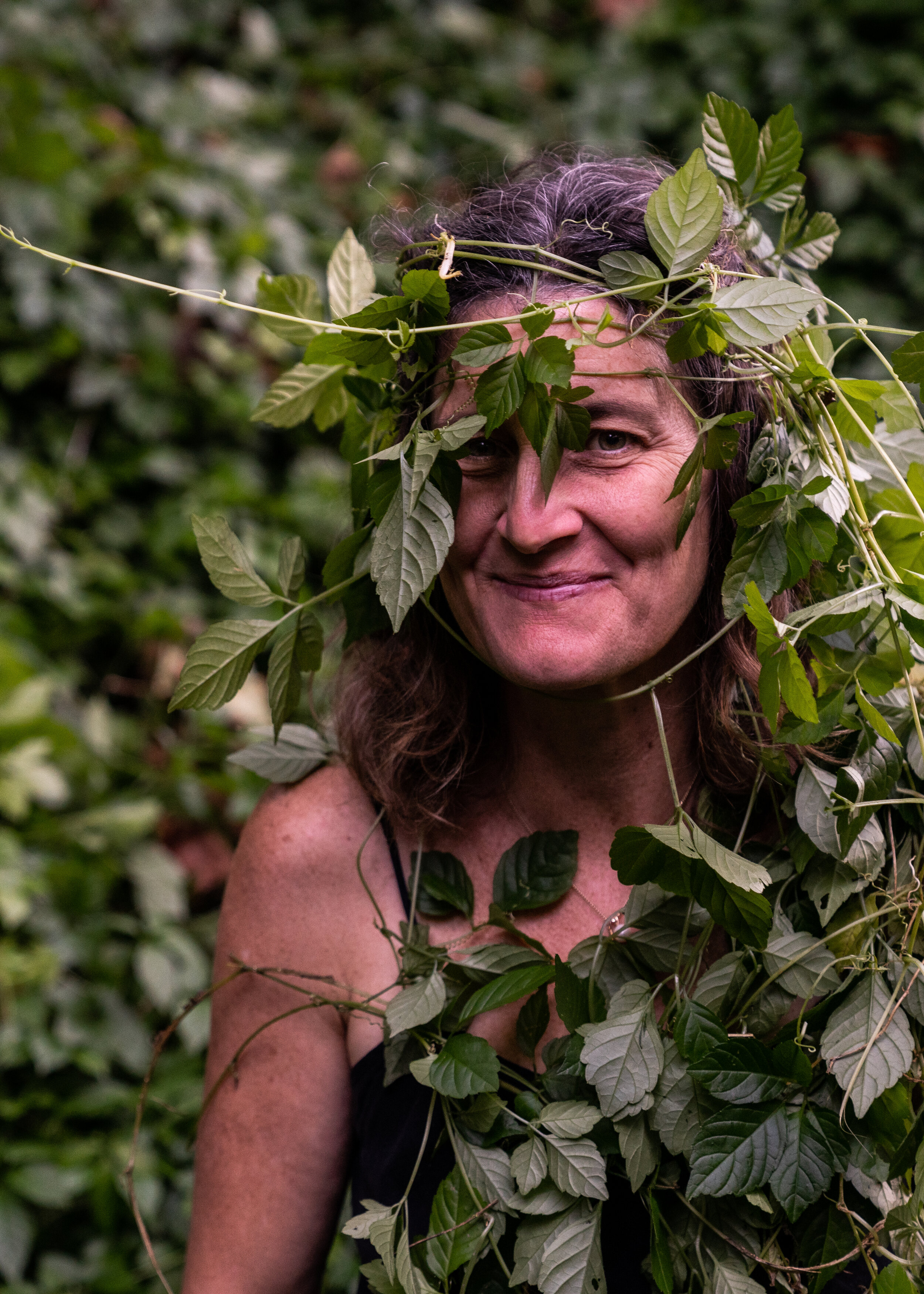Episode #47 of the Ground Shots Podcast features a conversation with artist and creative land-tender Sharon Kallis, who lives in Vancouver, BC, Canada.
Sharon is a community engaged environmental artist
I met Sharon last year at the Saskatoon Circle ancestral skills gathering in eastern Washington. Before the gathering, one of my good friends had been telling me about Sharon and her partner David and how I should meet them. While at this gathering, they happened to set up their camp right next to the camp I made with my friends.
I have to tell you, Sharon and David are A LOT OF FUN. They make cool things, have a good time, and are incredible people to carry on deep and candid conversations with. After talking for a bit and learning more about their work, I asked Sharon if she’d be interested in sharing some of what she does on the podcast. Sharon and I talked about doing some kind of in-person interview last summer, with the potential of me attempting to cross the border into Canada to visit her gardens and projects in-person, but it never happened. At least, not for now. Also, the idea of dealing with carrying my mobile home across the border with tinctures, bark and animal pelts, had me hesitant.
Sharon gave me a copy of her book ‘Common Threads’ last summer to read through, and I loved it. I read about her projects with ‘invasive’ plants for fiber, rope and basket-making, her restoration projects in the city using those said plants, and other community oriented projects. These projects that literally weave art, ecology, place-making and craft skills together really inspired my already deep interest in gleaning what was right in front of me to make work that connects to place. I kept it in my mind to still feature her somehow on the podcast. After getting back from the Colorado Trail Plant-a-go walk this summer, she was one of the first people on my mind to contact. I wanted to hear what she was up to now, and also how the current situation in the world was affecting her mindset and practice.
Our conversation here is just that. A check-in, an exploration of Sharon’s work, some art + ecology philosophy talk, some untangling of what decolonizing craft could look like in one way and in one place, and more.
About Sharon Kallis: (From the Earthand Gleaner’s Society website)
Sharon is a community engaged environmental artist (in her words).
‘With a “one mile diet” approach to sourcing art materials, Sharon works to discover the inherent material potential in a local landscape. Involving community in connecting traditional hand techniques with invasive species, tended plantings and garden waste, she creates site-specific installations that become ecological interventions. Graduating from Emily Carr Institute of Art and Design in 1996 she began working materials from the land in 1999 and has exhibited and engaged communities with her practice in Ireland, Spain, Mexico and throughout the United States. At home in Vancouver Canada, Sharon works with Vancouver Park Board, Stanley Park Ecology Society. She is one of the primary stewards of the Means of Production Garden since 2009 which is a community garden that grows art materials. She is also one of the primary stewards of Trillium North Park. Sharon has received numerous Canada Council and British Columbia Arts Council grants for both studio-based and community-focused projects. Her work has been acknowledged as the 2010 recipient of the Brandford/ Elliott International Award for Excellence in Fibre Arts, Vancouver Mayor’s Arts Award for Studio Design: emerging artist, and the Vancouver Mayors Award Recipient for Studio Design in 2017.
Her book, Common Threads: weaving community through collaborative eco-art,” was published by New Society Publishers in 2014 and is used in many post secondary programs as a model for creative engagement in shared green spaces.’
In this conversation with Sharon, we talk about:
Sharon’s creative work and how she arrived at what she is doing today in Vancouver, BC, Canada
how creative folks can be important connection-makers and ecological problem-solvers and how allowing room for them is important
the importance of respecting indigenous peoples’ relationships to their cultural weaving and fiber practices
working on community garden projects in urban Vancouver focused on regional culturally significant fiber plants
how ‘invasive’ plants can be useful for learning to weave and for problem-solving because they are abundant free materials that you can mess up on while experimenting
different ‘invasive’ plants Sharon has worked with doing community craft projects in Vancouver, BC
the importance of Nettles, Fireweed and Flax as fiber plants and pollinator preferred species
how weeds are often seen as plants that simply don’t serve the human agenda
navigating connection to place and the land as a settler
trying to stay buoyant during pandemic, fires and revolution
Sharon offered a video how-to on fiber processing for patrons of the Ground Shots Project. It will be available for subscribers $5 and up! Pledge here to support the podcast and learn more about processing fiber from Sharon.
A few YouTube videos that feature Sharon:
Links:
Follow Sharon Kallis on Instagram @sharonkallis
Earthand Gleaner’s Society website
Sharon’s book, “Common Threads”
Support the podcast on Patreon to contribute to our grassroots self-funding of this project.
Support the Ground Shots Project with a one time donation via Paypal at: paypal.me/petitfawn
Donate on VENMO:
@kelly-moody-6
Cashapp: cash.app/$groundshotsproject
Our website with backlog of episodes, plant profiles, travelogue and more: http://www.ofsedgeandsalt.com
Our Instagram pages: @goldenberries / @groundshotspodcast
Join the Ground Shots Podcast Facebook Group to discuss the episodes
Subscribe to our newsletter for updates on the Ground Shots Project
Theme music: 'Sweat and Splinters' by Mother Marrow
Hosted by: Kelly Moody
Produced by: Kelly Moody and Opia Creative
